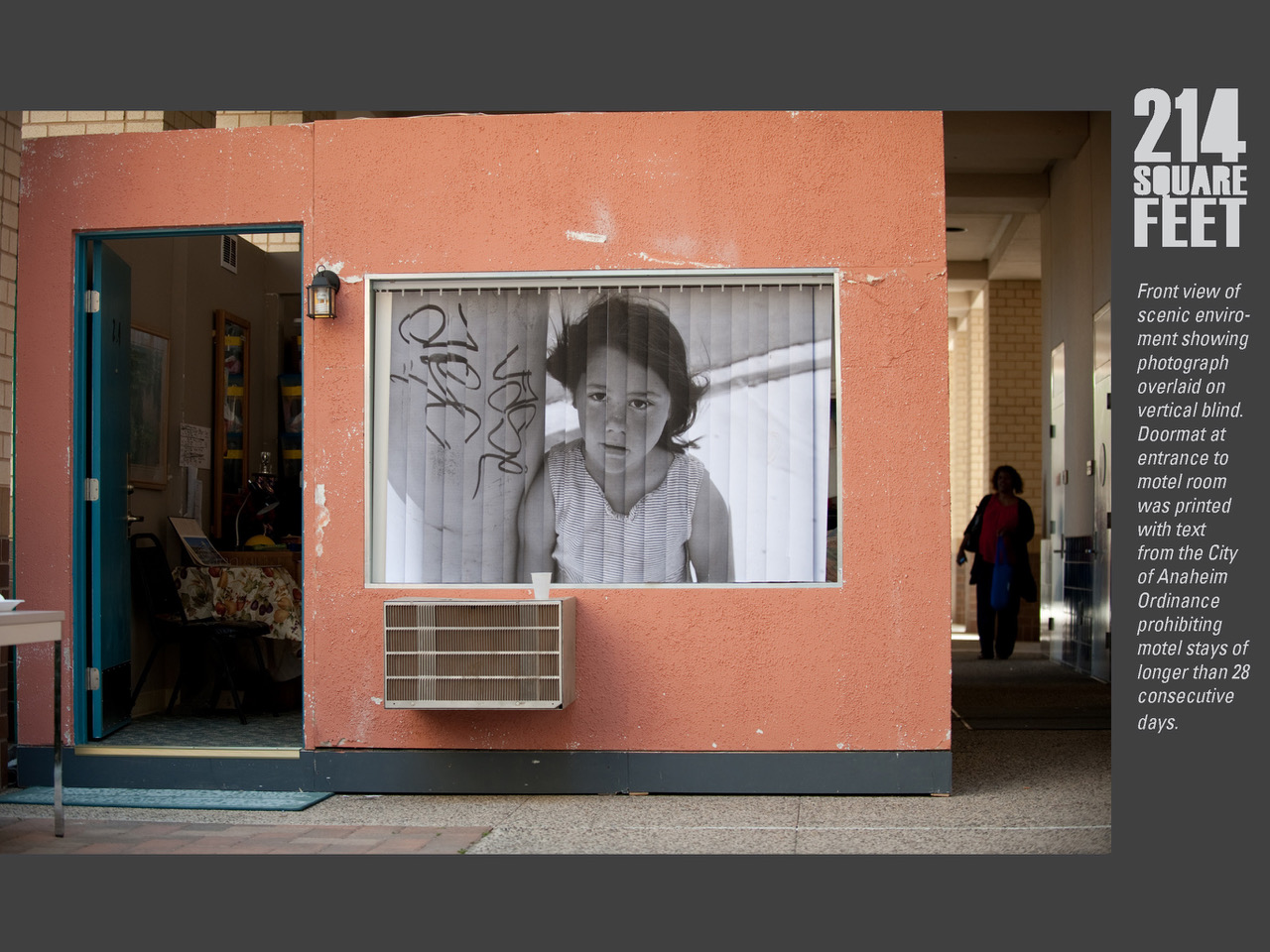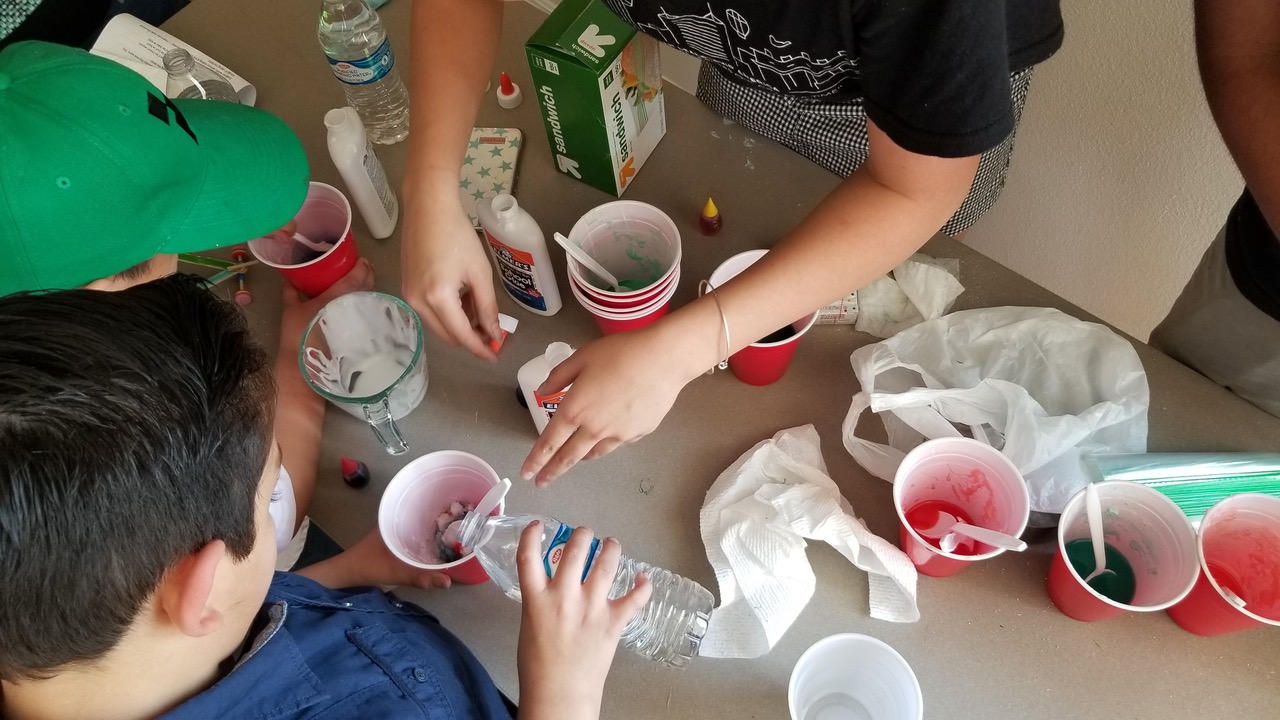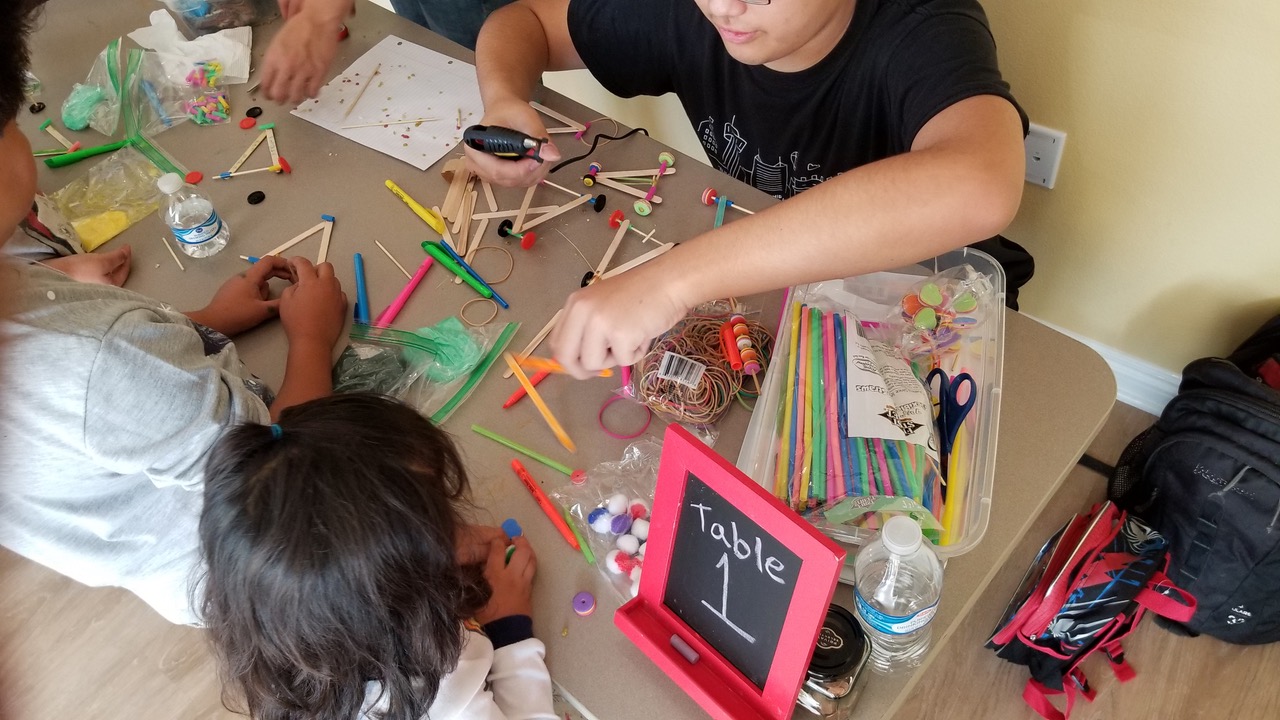
Project Hope Alliance: Giving Homeless Children The Tools They Need to Get Ahead
Project Hope Alliance works with homeless children, exclusively. These are the kids who live out of cars or in shelters, kids that don’t have a place to call “home.” It’s difficult to have hope for the future when you don’t know where you will be sleeping that night. It’s hard to do homework in a crowded, noisy space you can’t call your own. These kids, more than most, need our help to get ahead.
That’s what Project Hope Alliance is doing, mentoring these children and making sure they get an education and the tools they need to succeed in life, which is why we gave them a small grant—we wanted to help however we can. We spoke to Project Hope Alliance Foundation Relations Manager John Eumurian, to find out more about the indispensable work of this remarkable organization:
Kars4Kids: Tell us about your demographic, about the kids you serve.
John Eumurian: Surprisingly, affluent Orange County has 29,315 homeless school-aged children. High school graduation rates are less than 25% for these children, and lack of a diploma makes a youth 346% more likely to experience homelessness. Our target population is youth, Kindergarten to age 24, who are experiencing homelessness in Orange County.
We assist any child who is homeless under the definition accorded by the McKinney-Vento Homeless Assistance Act of 1987, which includes those living in cars, motels, shelters, on the street, doubled or tripled up with other families, or living in any situation which is not suitable for human habitation. 100% of our clients are living below the Federal Poverty Line (FPL). Last year, Project Hope Alliance served a total of 481 children, and 648 parents through our Elementary program (Bright Start), our Middle/High/Post-High program (Promotor Pathway), our Dolphin Market (closed due to COVID) and our Mobile Motel Outreach program.
Kars4Kids: How many kids are currently in your Bright Start program? Can you tell us a bit about this program?
John Eumurian: We are serving 51 children in the Elementary (Bright Start) Program. Through the Elementary Program, we provide educational support to children experiencing homelessness who require additional assistance in literacy and math utilizing multilingual academic support and materials, mentoring, teaching coordination and parent involvement. The program also pairs a child with a supportive volunteer mentor, who is trained by Project Hope Alliance, to help foster strong relationships and promote healthy social-emotional development.
As part of this program, children receive:
- Chromebooks
- Wifi access
- Individualized academic support & materials
- Personal weekly mentoring
- Teacher coordination
- Parent involvement
- Enrichment activities
- Support in navigating the school system (IEP, 504)

Kars4Kids: What happens in your Promotor Pathway program?
John Eumurian: We are serving 74 youth in the Promotor Pathway (Middle School, High School, Post-High School) Program. The program is centered around an in-place case management model, with PHA staff located on school campuses, providing daily interaction, tutoring, and wraparound support to ensure academic success. During the pandemic, we have also been providing distance learning and basic needs support to fill the resource gaps left by students’ absence from the school campuses. Program activities include:
-Individualized case plans and thorough needs assessments for each youth;
-Frequent communication through phone calls, home visits, school visits, text messages, etc. to ensure that individual goals are being addressed;
-Effective coordination of services between PHA, school leaders, and community agencies
-Crisis intervention (on call 24/7);
-Cultural and extracurricular enrichment activities: health education, financial literacy, life skills, recreational and educational field trips, college and career readiness;
-Distance learning academic and technological support during the pandemic.
Kars4Kids: You make sure the kids have computers and Wifi. Why is this important?
John Eumurian: One of the most significant barriers to academic success for students living in motels is their access to technology – a crucial tool in their attendance and participation in this era of online schooling. Not having access to a digital device or reliable Wifi essentially means that these kids cannot go to school. They cannot attend class, communicate with their teachers and friends, and their learning comes to a standstill. It’s an extreme version of the “summer slide”, where students without access to educational resources and activities in the summer begin to regress in their academic achievement without that regular classroom education. In this case, it is a much longer period of time and the only answer is to provide these children with technology.
To bridge the digital divide, we have been providing students with Chromebooks and Wifi hotspots (Jetpacks) so their academic success is not restricted by a lack of technology or internet connection. In response to COVID’s impact, we now deliver all of our services directly to our clients’ place of lodging (motels, shelters, doubled-up residences, low-income apartments). Our case managers support the students with the “distance learning” by bringing technology, hygiene, school supplies and food directly to them and their families. PHA is also hosting a mobile outreach to homeless families and children forced into motels due to job or home loss as a result of the pandemic. We are serving Santa Ana, Tustin, and Anaheim motels, providing between 20-40 families per location with bags of shelf-stable food and perishable food boxes, as well as Chromebooks and WiFi hotspots to K-12th grade children. Local faith partners are providing the food bags and produce on a weekly basis.

Kars4Kids: The mission of Project Hope Alliance is to “end homelessness, one child at a time.” How do the programs you offer fulfill this mission?
John Eumurian: Homelessness is a very cyclical phenomenon, meaning that children who grow up with housing insecurity are more likely to have lower academic achievement or increased mental and physical difficulties, which in turn causes them to have lower-paying jobs and raise their own family with housing insecurity. Most social service agencies approach homelessness from a reactive standpoint, working with individuals after they have already become homeless. Project Hope Alliance takes a proactive approach, working with children starting as early as kindergarten, in order to end the generational cycle of homelessness. Our programs address every deficit or barrier in a child’s life that might prevent them from succeeding.

Kars4Kids: Your CEO Jennifer Friend was an Orange County “motel kid.” Can you explain what that means? Why does doing homework, for instance, fall by the wayside for motel kids?
John Eumurian: Jennifer Friend spent her junior high and high school years cycling in and out of motels with her family as a result of her family’s fluctuating income. Growing up in a motel means not having privacy or a single dedicated place for school. Jennifer has numerous stories of not having a place to study or do homework, sometimes deliberately skipping assignments because she had to complete it on the carpeted floor and her paper would have holes in it. However, her parents had the ability to emphasize the importance of education. She graduated from college and law school and became a law partner in a large firm in Orange County. Her dedication to Project Hope Alliance is rooted in her desire to see that no child experiences the same stigma and hardship that she faced as a result of child homelessness.

Kars4Kids: Project Hope Alliance began with a school teacher who used her car to teach classes. Where does PHA operate now? How does coronavirus impact on your work?
John Eumurian: PHA’s offices are located in West Costa Mesa in the Newport Mesa Unified School District, which is host to the majority of the campuses where PHA serves. These include Costa Mesa Intermediate School, Ensign Intermediate School, Costa Mesa High School and Newport Harbor High School. We also serve individual students at other middle and high schools as well as post-high school youth at four different local college campuses. The Coronavirus pandemic has had a huge impact on our work, primarily in the lack of daily access we normally have with students on their campuses. Daily interactions at break, lunch, and after school afford our case managers the opportunity to consistently gauge a student’s progress and address barriers to success the moment they arise. In a distance learning environment, this becomes much more difficult.
One of the most significant barriers to academic success for students living in motels is their access to resources, which the school district typically provides in the way of social interaction, free lunch, tutoring and a safe place for the students during the day while their parent is working. As a result of the mandated school closures, our case managers have had to expend a substantial amount of time in travel to and from each student’s place of residence. To bridge the divide, we have been bringing all the resources directly to where the students reside so their academic success is not restricted by the gap in resources and support.
Kars4Kids: Can you talk about the role of mentoring in your program? Are the parents of the children in your programs also being mentored, to some degree?
John Eumurian: Mentors play a huge role in the success of our Elementary Program. They meet with their mentees once a week and we really do see a difference in the child’s self esteem, expression of their thoughts/emotions, and motivation. The mentors function as role models as well as a safe adult for mentees to talk to and have fun with outside of their immediate family. Through their mentors, kids are exposed to different areas of life, culture, and professions. We have mentors who are nurses, med school students, photographers, accountants, and professional athletes.
Even though the mentor is primarily there for the child, the parents also benefit. The mentor becomes part of the family. The parents are able to share their hardships and successes with the mentor and they both work together to help the child grow and succeed. The parents are asked to attend all mentor meetings with their students. Some parents actively participate in the mentor/mentee activities such as board games, art or academic support while others are initially hesitant to engage. Although the parents are not being mentored they are learning positive behavior interactions and strategies to use with their children. Parents watch how the mentor interacts with their student using healthy behaviors, and over time they begin to mirror the modeled behaviors. The majority of the families have multiple children and providing them with individual time is very limited (especially for single working parents) but mentoring creates that space for one-on-one time – something children value deeply.
Kars4Kids: Long-term commitment is part of your programs, serving children until they are 24 years of age. Why is this important? Why 24?
John Eumurian: As an organizational philosophy, we serve children birth to age 24 because we believe journeying with them to adulthood will disrupt generational homelessness. By doing so, we are also addressing a programmatic service gap – most agencies working with homeless youth terminate their services with youth past the age of 18, often called the “age of emancipation.” During this transition from adolescence to adulthood, however, youth achieve important developmental milestones, such as learning decision-making and coping skills and becoming more independent.
According to findings from the National Youth in Transition database, older youth often rely on family and other supportive adults to help them during this transition by providing guidance as well as a financial and emotional safety net. However, these supports are often unavailable to older youth who are in families experiencing homelessness, and often living on their own by 18. Youth over 18 without resources or a support network are at increased risk for several adverse adult outcomes, including homelessness, high unemployment rates, low educational attainment, and early or unintended pregnancies. To address the gap, PHA’s goal with post-high school youth is to guide them in their career path, with a focus on entering college or a vocational trade school, and acquiring employment with a living wage.
Kars4Kids: What’s next for Project Hope Alliance?
John Eumurian: Our goal is to continue to expand to school campuses across Orange County, and post-COVID, we will resume our work to place case managers on satellite school campuses in the Newport Mesa Unified School District, in alignment with the invitation from the district to bring our services to all 32 school sites. We do not know how the academic environment will be structured after the pandemic subsides, but we do understand that a post-COVID educational model will be a hybrid that continues to utilize online learning modalities. The lessons we learn during the pandemic are equipping us for those future scenarios, to know how to best serve our kids. Additionally, students’ families will still be dealing with after-effects of the pandemic like housing loss, job loss, bankruptcy and loss of basic needs requiring our team to continue to maintain the stream of resources needed to stabilize the families. Our team must stay nimble and adaptable to be able to address the broad range of issues that we’ll continue to see well into 2021.
In the long term, we expect that our services will provide our youth with the tools needed to excel both in and out of school. We expect to see improvements in their academic engagement and performance, as well as in their social-emotional development, including communication skills, decision-making, and personal relationships. We expect that our high school seniors will graduate on time and have a chosen pathway toward higher education or employment. As funding permits, we plan to expand to additional campuses, which should increase our overall enrollment numbers.